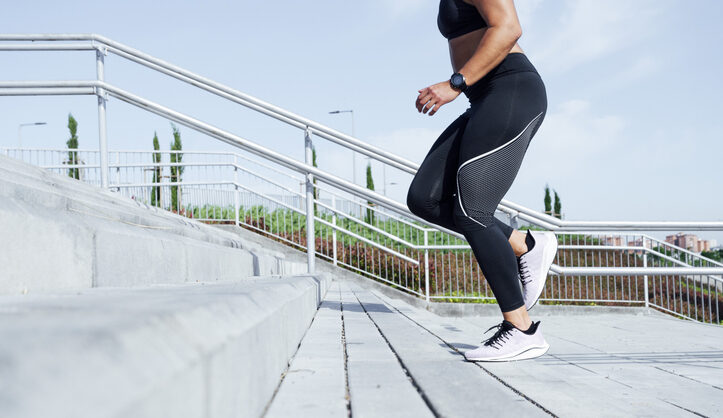
[ad_1]
According to the butterfly effect, one small change in the present can lead to a big change in the future… and that’s about where my understanding of chaos theory ends, folks. What I do know is that the human body operates in a similar way. When one thing gets thrown out of whack, it tends to have a ripple effect. And, specifically, if you’re not practicing ankle-strengthening exercises, your hips are likely paying the price.
“Just like the song ‘Dem Bones,’ ‘the hip bone’s connected to the… knee bone.’ So, the ankle is really connected all the way up to the hip,” explains physical therapist Karena Wu, DPT, owner of ActiveCare Physical Therapy
This type of domino effect can happen in all types of movement patterns, but Dr. Wu says she most often sees weak ankles causing problems for folks who run or who play tennis, soccer, beach volleyball, or other sports that involve start and stop motions on uneven terrain. And that kind of makes sense, right? When you’re coming to an abrupt stop, landing at an odd angle could wind up straining your entire lower body.
Fortunately, strengthening your ankles (and your feet) helps to increase the longevity of your hips (and your entire lower body kinetic chain). Below, Airrosti physical therapist Anthony Pavlich, DPT, shares the three ankle-strengthening exercises he recommends to everyone.
3 ankle-strengthening exercises recommended by a physical therapist
1. Monster walks
Stand with your feet shoulder-width apart and a resistance band around your calves. Tighten your core, and push your hips back until you’re in a half squat position. Keep your head and chest up, and your knees at about a 120-degree angle, making sure they stay behind your toes for the extent of the exercise. Push your knees out and walk forward and then backward while holding the half squat position. Keep your feet parallel, with toes pointed forward.
2. Single leg deadlift
Stand with your feet shoulder-width apart. Keep one foot planted on the floor and bend at the hip to press the opposite leg straight out behind you. Reach your arms straight down in front of your body, or place them on your hips to make sure your whole posterior chain (backside) is completely flat. Bring your leg back to the ground, and switch sides. For an added challenge, hold a dumbbell in one or both hands.
3. Split squats
Move into your lunge position with one leg forward and one leg back. Slowly lower yourself down to tap your back knee onto the ground, then use your glute muscles to contract and raise yourself back up to a tall, standing position. Make sure to complete an equal number of reps on each side.
[ad_2]
Source link